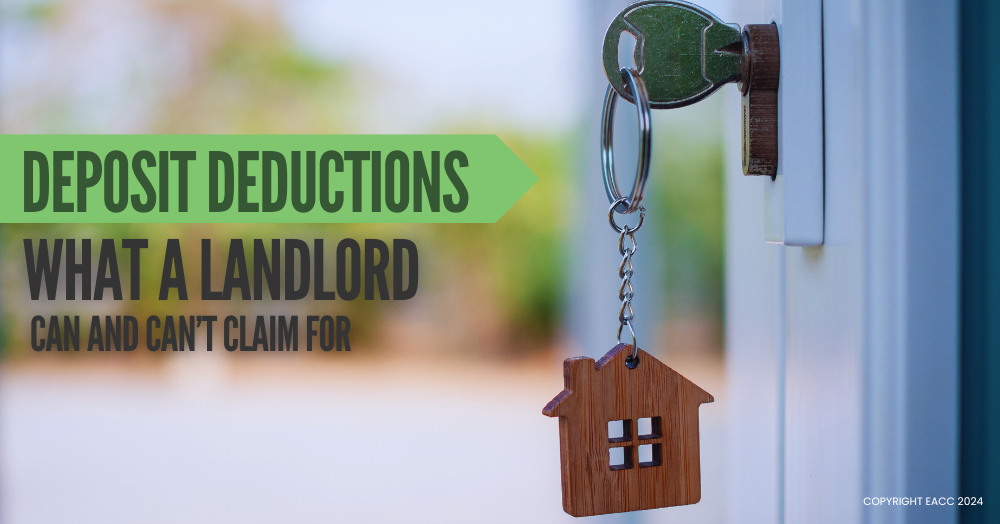When a tenancy ends, there’s often confusion – and sometimes disputes – over what a landlord can claim as a deposit deduction.
So, let’s look at what’s reasonable to claim and how to avoid deposit disputes in the first place.
A landlord can deduct funds from a tenant’s deposit to cover*:
- Unpaid rent or bills.
- Damage caused by negligence or recklessness. (The tenant should return the property in the same condition as at the start of a tenancy.)
- Anything in the property at check-in that is missing at check-out, such as furniture, appliances and smaller items such as lampshades or toilet seats.
- Cleaning or gardening not carried out to the standard specified in the contract.
- Removing belongings or rubbish left by the tenant.
- Lost rent from the tenant vacating the property before the end of the contract without the landlord’s agreement.
Fair wear and tear
When assessing a property at the end of a tenancy, landlords must allow for ‘fair wear and tear’. This term refers to the deterioration you would normally and reasonably expect to see over time.
In determining fair wear and tear, landlords should consider the number of tenants in the property and how long they lived there, along with the item’s age, quality and life expectancy.
For example, if a tenant has been in a property for three years, you would expect signs of some degradation in the carpets in high-traffic areas (i.e., fair wear and tear, no claim). By contrast, a red wine stain on a carpet would not constitute fair wear and tear, and the landlord could claim.
However, they could only recoup the costs of removing the stain, not the costs of installing swish new carpets. Why? Let us introduce you to another legal term.
Betterment
By law, a claim shouldn’t put a landlord in a better position financially or materially than they otherwise would have been (or, in legal terms, ‘betterment’).
Getting the tenant to foot the bill to replace a carpet that was already well worn would put the landlord further ahead than they were at the start of the tenancy.
So, how do you find the balance between ensuring a landlord covers their costs without bettering themselves? To help with this, we use a formula that factors in an item’s age and lifespan. (Get in contact if you’d like to know more about the specifics.)
That way, if the tenant challenges the claim, we can demonstrate our decision-making process.
Avoiding disputes
Over the years, we’ve managed hundreds of tenancies, and we’ve learned that the best way to avoid stressful deposit disputes is to:
- Create a detailed check-in inventory with photographs and descriptions.
- Build a good rapport with tenants and conduct regular inspections (so there are no nasty surprises on moving-out day).
- Use an experienced letting agent.
If you’d like us to guide you and your tenants through the check-in and check-out process, contact us today.
* This article is a guide only; it does not constitute legal advice.
